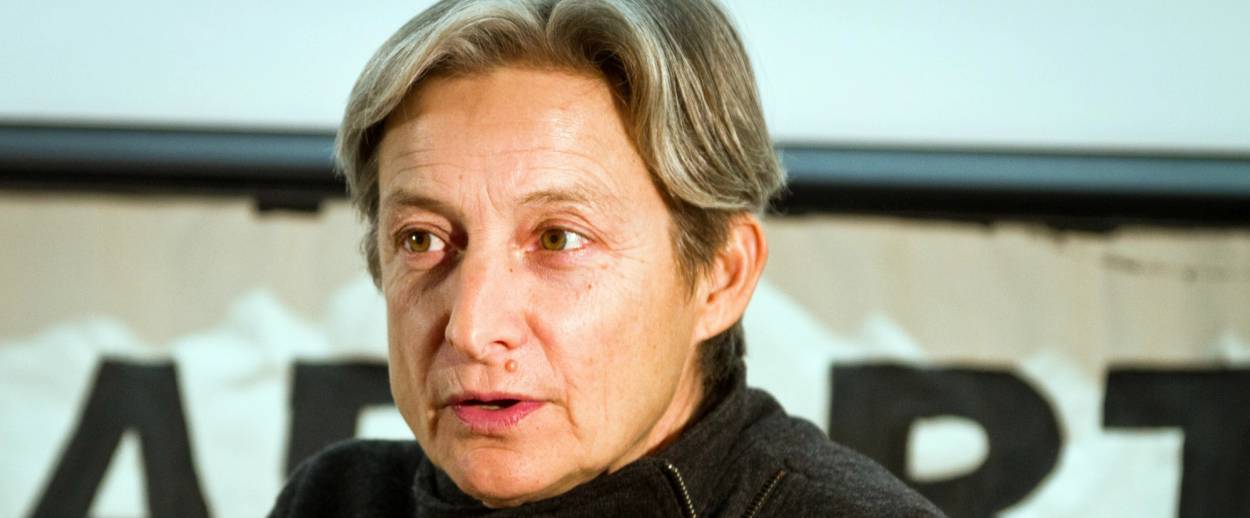This is How the BDS Sausage is Made
Prominent academic offers inside look at anti-Israel campaign of deception




Judith Butler is an admired academic. She is a professor at the University of California, Berkeley, and is believed to be a theorist of gender, although one can never be quite so sure with quotes that fret about things like “the move from a structuralist account in which capital is understood to structure social relations in relatively homologous ways to a view of hegemony in which power relations are subject to repetition, convergence, and rearticulation brought the question of temporality into the thinking of structure, and marked a shift from a form of Althusserian theory that takes structural totalities as theoretical objects to one in which the insights into the contingent possibility of structure inaugurate a renewed conception of hegemony as bound up with the contingent sites and strategies of the rearticulation of power.”
On one issue, however, professor Butler rarely obfuscates: Israel, which she believes to be a unique global evil worthy of all manners of censure. In a few years, Butler is slated to take the helm of the Modern Language Association, one of the largest and most influential academic associations in America. Though its mission statement is to “strengthen the study and teaching of language and literature,” a few of its members have focused their efforts on advocating boycotting the Jewish state. In January of last year, the organization’s members rejected a resolution to boycott Israeli university, and a few months later, in June, enthusiastically supported a resolution prohibiting future boycott resolutions. Still, for a sizable minority obsessed with singling Israel out for calumny, such unequivocal rejection from their colleagues was only interpreted as an invitation to double down on their efforts. Last week, they congregated in New York, with Butler at the helm.
The event was advertised as “free and open to the public,” so Cary Nelson decided to go. The former long-time president of the American Association of University Professors, he teaches English at the University of Illinois at Urbana-Champaign, and is one of academia’s most distinguished reformers, leading, for example, the effort to allow graduate teaching assistants to unionize. In recent years, he has emerged as a vocal critic of the BDS movement on campus, which is why his appearance at Butler’s meeting turned heads.
His account, published in the Jewish Journal, is a must-read for anyone interested in observing how the BDS sausage is made. No sooner than Nelson arrives at meeting is he asked to leave, with Butler proposing a vote and urging Nelson to succumb to the mob’s rule.
“Not answering her directly,” Nelson continues, “I said it was supposed to be an open public meeting. People said that didn’t matter. They were young and vulnerable and I might take down their names and institutions and retaliate against them. After all, I was a person of power. Exactly what power no one volunteered to say.”
The mendacity, the paranoia, and the moral preening go on. The intimidators accuse Nelson of intimidation. Those who twice lost votes to enforce their ideological bias cry out that the votes were rigged. When history is recounted correctly, they claim that they’re being denied their right for free speech, which they understand to include, first and foremost, freedom from fact. And atop it all sits the celebrated Butler, hailed as a thinker of merit despite her discernible achievements being limited to the erosion to the principles of unfettered inquiry and rational debate.
These principles still matter, now more than ever. Defending them should be the charge of more than merely Israel’s embattled supporters on campus.
Liel Leibovitz is editor-at-large for Tablet Magazine and a host of its weekly culture podcast Unorthodox and daily Talmud podcast Take One. He is the editor of Zionism: The Tablet Guide.